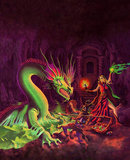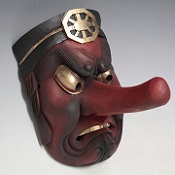|
JcDent posted:Oh, didn't know that! Naw man those are just the angels of the Archon of War, and the Clergy of the Death Angel of Violence. I mean jeez it's like you can't keep track of all these confusingly named proper nouns and overlapping power portfolios. What are you some sort of casual gamer or something lol. At least the weird nazi violence cultists actually wear pants so we don't have a demonic dong flapping around as well.
|
|
|
|

|
| # ? Apr 16, 2024 19:17 |
|
PurpleXVI posted:Naw man those are just the angels of the Archon of War, and the Clergy of the Death Angel of Violence. I mean jeez it's like you can't keep track of all these confusingly named proper nouns and overlapping power portfolios. What are you some sort of casual gamer or something lol. Considering what we saw the last time Kult tried to put a dong and breasts on the same person, I don't think it would be flopping around.
|
|
|
|
Ghost Leviathan posted:Sigmar not having a known heir reminds me a bit of Kahless the Unforgettable and makes me wonder if Star Trek was an influence there. And also the heavy implications/fan theory from the old days that Sigmar was actually a wayward Primarch, back from when it was strongly implied the Old World was in the Warhammer 40k universe.
|
|
|
|
wiegieman posted:Warhammer was originally a way to make RPGs about elves and dwarfs without getting sued by the Tolkein estate. I thought it was originally a company that was distributed D&D cause Gygax thought they were an established company rather then three men in a flat. Who nearly merged with TSR to retain exclusive distribution right, but the owners other then Gygax were against it. Though once they did get established they sold generic fantasy mini's for D&D before eventually deciding to do their own thing. (Cause Competitors were selling D&D now.)
|
|
|
|
7th Sea 2: Nations of Theah, Vol. 2 - HELL ITALY Vodacce is a land of contradiction, of honor and depravity, where words and actions are judged on entirely different standards. It last unified days were the Old Empire, and most of its interconnecting roads date back to that time. Over the centuries, there have been more and less princes vying for control. Today there are seven, but once there were as few as three. Their various strategies to fight each other and control Vodacce are known as the Great Game. It is a ruthless activity, nearly omnipresent in Vodacce. The Princes work their schemes into every aspect of life, and the only safe place from one Prince is the court of another. Because of the power that many noble women wield in Vodacce over luck and fate, the ruthlessness is seen as pragmatism - you wipe out entire families and ruin your enemies because if you don't, well, a grieving sister or mother as more dangerous than an assassin's blade. Only total destruction is safe. You spare no one - even children, who may one day grow to seek revenge. This casual brutality is a self-perpetuating system, and those who can no longer be credible threats are quickly wiped out. Vodacce custom, however, declares that men never fall - they are pulled. Because everyone knows Sorte is everywhere, it is blamed for everything. When a normally temperate man suddenly starts to drink, the Vodacce assume not personal crisis, but a strega's art. Outrageously low chances and absurd coincidences are accepted without a thought, because when even fate can be bent to ambition, normal probability simply does not apply. Many folk practices have grown up to protect against Sorte, such as nailing seven spiders to a lintel, but these serve to hide the great weakness of the magic: its users cannot benefit themselves with it. They can only wield its power on others. Further, the women who can wield that power are kept as prisoners of their own palatial homes. They are held apart from society, barely educated, slaved to their husbands or their fathers or their brothers. Social convention states that any strega must test her daughters for the gift, as well, and condemns them to the same fate. Many from outside the nation wonder why women with such power over destiny tolerate these circumstances. The answer is unsatisfying, yet simple: to survive. The strega are powerless to aid each other, barely educated and with little choice but to rely on others to feed and house them or shelter them from those they have cursed at their husband's call. Further complicating things is that the status of the strega is one issue, perhaps the only one, that the Princes agree on. Whatever an individual man may think of his wife, no matter how much he loves or admries her intellect, he knows in his heart that if he allows her to go unveiled or she is seen to study, the agents of the Princes will descend upon his family in full brutality. Every Prince back to the first has understood: their wealth and their power relies on the subjugation of the strega. However, things may be changing now. Morella Alouse Giancinni, wife to l'Empereur, and Domenica Vespucci, wife of Stanislaw II, both left Vodacce with the blessing of their Princes. Whatever short-term gains these alliances may have made, they also gave two powerful streghe freedom and privilege that is unheard of in their homeland. The women of Vodacce could be far more potent, were it not for the cleverly made laws that trap them in the control of their husbands and fathers. Nobles keep their women on a leash, controlling what they are allowed to learn, how they may act and who they can meet, as much as they dare to do. Even a non-strega noblewoman is kept on a gilded chain. Commoners have it easier, generally. Common women are allowed to do largely as they please, except for reading or writing, which are forbidden even to them. Of all women, only courtesans may pursue higher education, and even on them, literacy is fairly rare. Courtesans might be said to be the most powerful of women, for while none are streghe, they understand Vodacce politics and even take part. However, it should be understood that in Vodacce, no fewer women work and fight than in any other nation - they just suffer more legal boundaries, and socially, the Vodacce typically frame them by the men in their lives rather than their own power. Their father's name may be more important than their own deeds, and they are expected to be demure and obedient to their husbands. It is a world of double standards. While a man may, even is expected to enjoy courtesans, it would be a scandal for a woman to do the same. Men casually drink and duel into the night, but a woman who challenges someone must be sure to strictly abide by Guild regulations or be punished. Men may sit around all day discussing philosophy, but a woman doing the same is a criminal. Women must act carefully to remain within Vodacce law, and most of its women learn how to play the game of law as best they can. Prince Alcide Mondavi is the only prince with a full writeup, but the rest get a brief cover in a sidebar; more on that later. The Mondavis trace their ancestry back to a group of Old Empire rice dealers. It is said that he loves books more than women and farming more than fighting. Not that he's bad at fighting - quite the opposite. He excels, and few who have challenged him have survived. He just doesn't make a big deal out of it, seeing combat as a mere obstacle to be overcome as efficiently as possible. However, his public face as a bookish, indifferent prince is a mere facade. Where Giovanni Villanova revels in being publically merciless, Prince Mondavi conceals his brutality behind his family's reputation for complacence. However, Alcide Mondavi is a true monster. His hunting lodge, la Montagna di Cacciatori, is a testament to his psychosis. His lands are kept orderly and free of crime by kidnapping and murdering troublemakers. The Prince's game wardens are a handpicked squad of remorseless murderers, and when he became Prince, he had them kidnap all criminals in the town of Elemosina and release them in his game preserve. There, Prince Mondavi hunted them down like animals, skewering them all on his blade. This is the only form of hunting that still provides Alcide with any sense of accomplishment now, seeing the eyes of a man who knows he is about to die, that he is nothing more than an animal. The predators of the mountain are now mere concealment for Alcide's games, having developed a taste for human flesh given all the bodies he leaves for them. More recently, Prince Mondavi's ambitions have expanded. He is no longer content with private murders - he wants Vodacce to be pushed to violence. He and his agents have begun heightening tensions between the other Princes, using his rice exports to hire loyal and bloodthirsty Eisen mercenaries and bribe ruthless Inquisitors. If his plan succeeds, he will provoke a Vodacce civil war, growing rich by selling food to both sides and then unleashing his allies on the exhausted survivors. He will drown the land in blood...and if that brings him the crown of a king, well, so much the better. Alcide Mondavi is a man with few pretensions to fashion. He is never ugly, he's just plain and utilitarian. He carries himself with a bored aloofness and has little time for society. Few outside of his closest associates - he has no friends - know of the monstrosity that lurks beneath the surface, and those that find out usually get sent to the hunting lodge as prey. So, that sidebar. Not all of the Princes are dyed-in-the-wool Villains like Mondavi. Some can even be said to be heroic. Others, less so. Gespucci Bernoulli is a wealthy man of grand excess, and a ruthless leader who believes that the first thing to do when threatened is put on a show of force. Vincenzo Caligari is a spy and a smuggler, obsessed with Syrneth artifacts. Many argue that he is no longer a man at all, thanks to his mad obsession. Giovanni Villanova is pragmatic, ruthless and publically merciless, the wolf that the other Princes throw their foes to when they lack the stomach for personal cruelty. He is also one of the biggest threats to the other Princes. On the other hand, some of the Princes will not go to the same extremes, and do not generally abuse their power. Donello Falisci is a happy if somewhat alcoholic man, and while he deals in secrets, he's more likely to pick and choose what he sells and to who rather than just freely dealing in them. Michele Lucani is an honorable man, who refuses to force his wife and daughters to use their power and instead works with them as partners. Alessandro Vestini is the weakest Prince, even if his lands are rich. His wife actually runs his territory, and women have made huge strides in his lands while he pretends to ignorance about what forms of knowledge they pursue under his rule. More on them will be covered in locations. Anacleto di Rinascita is the Bibliothecarius and keeper of the library within the tower of L'Edificio, able to discuss nearly any topic at the highest level. He is an attentive listener and has helped many to solve the riddles of artifacts and relics as long as he is allowed to document anything discovered for L'Edificio's collection. He has been approached several times by the Invisible College, but has always refused membership. He is a devout Vaticine, and while he finds the recent anti-intellectual bent of the Church repugnant, he sees it as the inevitable influence of Castillian prurience. Even so, he will not associate with those denounced by the Church, not matter how sympathetic he finds their cause. The aging scholar is currently frustrated by only two topics: the origin of the Syrneth ruins and the nature of divinity. The many accounts of complex traps, inhuman architecture and strange materials in the ruins suggest they lie outside Theus' plan, and the artifacts hoarded by the Caligaris seem to have no place in human history. They seem to be something parallel and separate, devised by inhuman minds for inhuman hands. Anacleto's pursuit of the topic has drawn him closer to Prince Caligari, who is 30 years his senior but has the strength and power of a man 10 years his junior. As for the nature of divinity, reports of heathen gods walking the land of Aztlan in the New World has shaken Anacleto to his core. If tangible yet numinous beings exist across the sea, by what logic can their existence, past or present, be ruled out in Theah? The deeper he searches, the more sacrifices he and his fellow scholars must make to solve these mysteries, and he worries that he and the Eruditi, his order of librarians, have tainted their souls. Anacleto is a round, portly man with a fatherly demeanor. He tends to make a lot of analogies to help explain his thoughts to laymen, and will often interrupt high profile lectures to deal with earthly problems. He is a very knowledgeable man, and he adores discussing Aztlan and the Syrne, looking to gain any extra details he can from travelers. He will happily barter his own knowledge for it. Desiderata, Mistress of La Passione, is the most famous courtesan in Vodacce. She runs the Vestini family courtesan academy, but has no relation to their family. In fact, shockingly little is known of her past at all, and she casually deflects all inquiries with charm. She showed up at La Passione as a girl, paid her tuition with a sack of gold and gems, and grew into a very handsome lady. While she was much pursued, she was never quite able to conceal her contempt for the loudmouthed nobles...which made them pursue her all the more, and she quickly began extracting favors and money from them. She used those favors to secure the independence of La Passione, and a brief dalliance with young Prince Marco Vestini established that the school would exist in perpetuity, safe from the Princes, while a night with a Cardinal earned it a writ of exemption from Church persecution. When the school's headmistress grew too weak to lead, Desiderata was chosen as her successor despite her youth. Since then, she has spent most of her time loving with the double standards of Vodacce. She has openly taken both male and female lovers and refused to punish her students for doing likewise. When one of her students was found with a Lucani nobleman's wife, she performed only a brief inquiry into the wife's situation, and on finding that the woman had paid for her time, she simply told the noble that he should either satisfy his wife or reduce her allowance. She's modified La Passione's curriculum to include self-defense classes, shooting and physical fitness. She's even drawn the ire of the Duelists' Guild by teaching her students an unlicensed knife fighting style that uses an easily concealed stiletto to attack the neck, abdomen and groin. She often leads her students in handing out food to the poor and indigent people of gutted Bassifondi, and has often offered precocious slum girls scholarships to La Passione. Many believe she hails from the area herself. Desiderata is, unsurprisingly, a ranking member of Sophia's Daughters, and shockingly sincere in her actions and convictions. Among those she distrusts, she is charming, diverting serious conversations to discuss irrelevancies and trivial matters, but among her trusted friends she is a plainspoken, goal-oriented and ruthless woman. Marcelo, il Pazzo di Potenza, is a fixture of the city of Potenza for as long as any can recall. His ravings outside of the gates of Prince Bernoulli's palace have earned him the name il Pazzo, the Madman, and he certainly looks the part, with his lank hair and bunions on his bare feet. There are many stories of his rise and fall. Some claim he was a Bernoulli cousin, tortured and broken for some hideous crime. Others say he was a somozzatore, a frogman, who found something under the city so terrible that it shattered his mind. The colonelli, or merchants, say that he was cursed by a vengeful strega. He spends most of his days ranting and raving and speaking in tongues, but sometimes he is clear and concise. Sometimes he speaks of the past, of the feeling of his daughter's hair in his fingers, the sunset along his favorite canal or the smell of his wife's perfume. Other times, he speaks prophecy. Either way, these moments of clarity are always shocking. His oracular moments have seen him consulted by ship captains before voyages, city fathers and guild leaders over matters of business, locals seeking the answers to petty conflicts. It'd be hilarious if folks didn't keep swearing his advice had saved the city on several occasions. Popular agreement has made three forbidden topics of inquiry with Marcelo: the Bernoullis, Syrneth artifacts and where his powers came from. Anyone mentioning any of these three things in his presence sends Marcelo into a catatonic state for days or triggers a howling fit in which he attacks anyone that disturbs him. In either case his madness renders him utterly useless at best or even dangerous at worst. He's not actually very old, despite his gray and scraggly hair - he's just aged beyond his years. He sounds friendly and reasonable even when ranting incoherently. Whatever caused his condition makes him see all possible futures simultaneously, and the terrible strain of this ability, especially in Vodacce, where fate is a plaything of the streghe, cost him his family, his job and his sense of self. He desperately wants to get his old life back, but no one seems to notice his pleas, hidden in his madness. Next time: HELL ITALIANS
|
|
|
|
It's going to be interesting to see how 2E does Wick's pet nation.
|
|
|
|
Ghost Leviathan posted:Does Fantasy have Blanks and Pariahs like 40k? Not canonically. The winds of magic/realm of chaos don't exactly behave like the warp either.
|
|
|
|
Yeah the Fantasy is a 40k warp world and Sigmar is a primarch is a really old and not really true thing anymore as far as I know
|
|
|
|
Sigmar is a Sensei, obviously.
|
|
|
|
Oh, is that where he went? He went east and became some celebrated traveling monk or tutor in Nippon?
|
|
|
|
 Chapter 8: Xenoforms - Etoile thru Grey 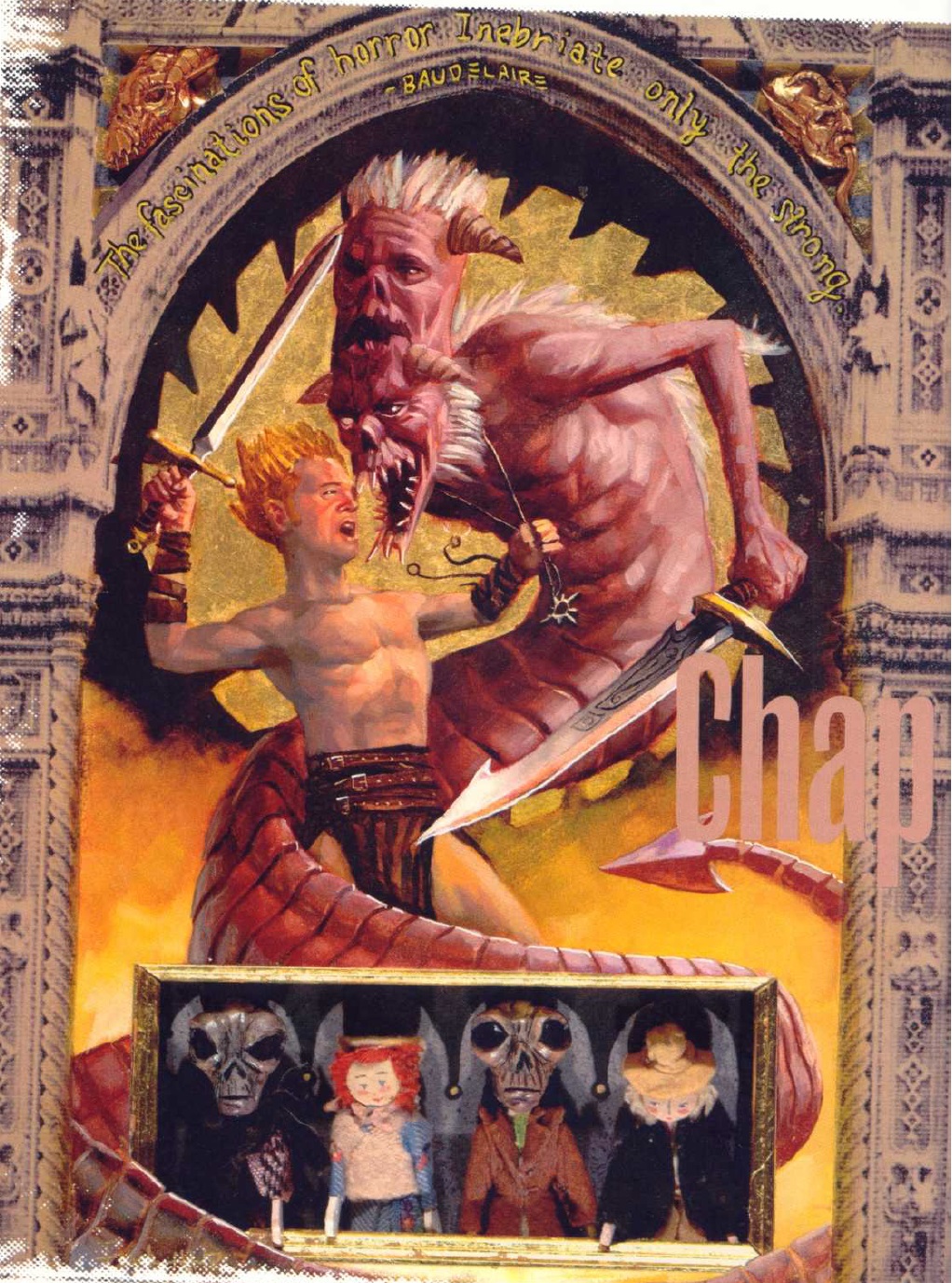 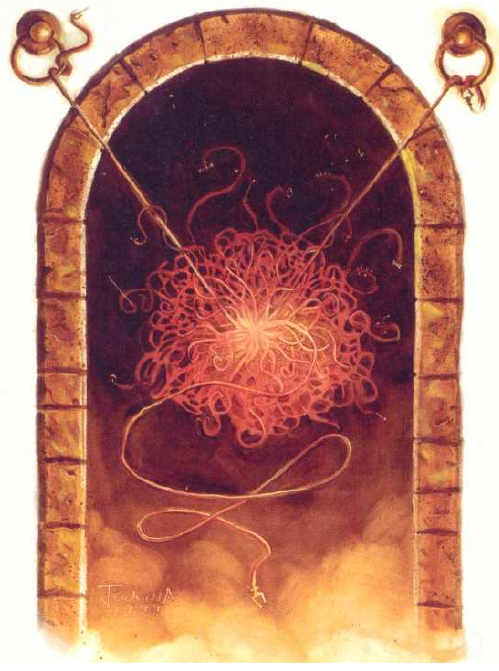 Fig. 1 - An Etoile in its natural habitat.  Fig. 2 - Also an Etoile. ETOILE Description: Bio-mechanical tumbleweeds from space. They're comprised of hundreds or thousands of tentacles that can all perform independent tasks simultaneously, and it's not understood at all how the creature's biology actually works (it seems to lack any apparent organs or other structures that most lifeforms require; indeed, it seems that there is hardly anything to the creature than the writhing mass of tentacles). They're all charged with some sort of powerful electrical current, although how they maintain this charge is a mystery, as is whether or not they can lose the charge due to natural entropy or whether it exists as some sort of zero point energy. They completely avoid water because submersion seems to neutralize or discharge their internal current, which appears to kill them. Although the creatures are typically solitary, it has been infrequently observed that solitary Etoile will combine into a massive cluster for several days, broadcasting radio static and interrupting any wireless signals with in certain radius. After what appears to be an arbitrary amount of time they'll disperse, each returning to their own territory. Since neither humans nor Greys nor the Kinori have been able to successfully communicate with an Etoile, the purpose of these sporadic clusters will remain a mystery. My Take: A single Etoile isn't really much more menacing than a regular human in straight up combat. They do have decent natural armor and they've got a good resistance versus ranged attacks, but none of their innate abilities exceed what a normal human could bring to the table. Most of their value in the setting comes from the fact that they possess innate knowledge of technology that far exceeds what even the Greys have mastered, displayed in their ability to create Sandmen (human cyborg slaves). Overall, I feel Etoile are better used as plot hooks or background manipulators of events, because they'd make a fairly unremarkable monster-of-the-week in a combat encounter. 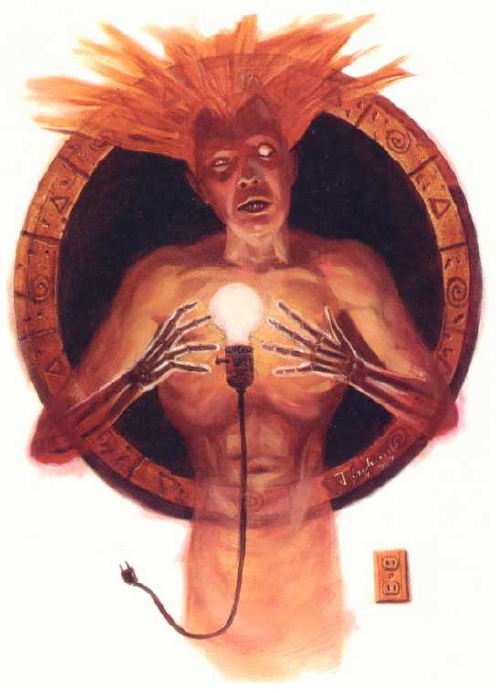 GHOST Description: We all know what ghosts are, and hoooo boy if Dark*Mater hasn't already beat the SPOOKY G-G-G-GHOST horse to death in the preceding chapter. Their entry in the bestiary doesn't include anything unusual or out of the ordinary, so it's really just padding for the inclusion of their stat block. Interestingly, Ghosts aren't treated as a template, so they're very specifically ghosts of human beings; I don't know whether or not the unstated implications of this for Greys and Kinori and other sentient beings is intentional, but they definitely feel like an obvious plot hole. My Take: Ghosts have some weird interactions with the Alternity combat system. Supposedly they can only be observed via the use of the Intuition specialty skill and no other means; this is significant because Intuition is one of the more niche specialty skills that very rarely gets used in play, so most players may not invest points in it, which would then make interacting with a ghost nearly impossible. Ghosts are "out of phase" with reality and are extremely hard to damage with mundane weapons (assuming you can even perceive them) but for some reason it's slight easier to hurt them with silver weapons (presumably because we're basing this on D&D's idiosyncratic interpretation of ghosts). They possess some rudimentary psionic skills and can only be permanently destroyed if the players resolve whatever trauma happened to create the ghost in the first place - if their durability is simply reduced to zero, they will magically reform within a certain span of time, depending on how powerful the ghost was. Since Alternity doesn't use the concept of Hit Dice or Levels for monsters, advancing a ghost in power would be a fairly arbitrary exercise on the GM's behalf, mostly down to fiat and whatever they decided "felt right". Another monster that I feel works better as a plot point than a direct combat encounter, since obviously their inclusion tells the players that they're going to have to solve a traumatic murder mystery to resolve the ghostly manifestation. 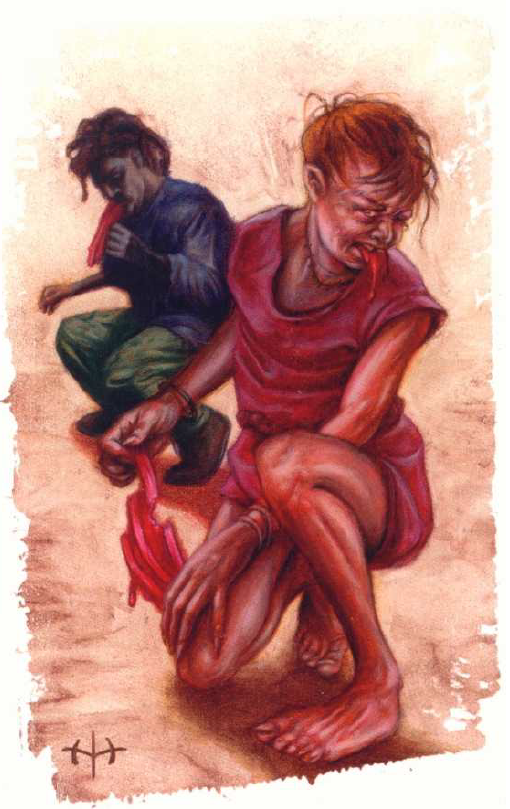 GHOUL Description: Since Dark*Matter doesn't do "traditional" undead monsters, Ghouls in this case are just fanatical members of cannibal cults that have completely given in to their deprived cravings. They're typically located either in small camps nearby heavily trafficked roads so that they can try and snatch lone travelers (The Hills Have Eyes style) or else they make camps in the bowels of large urban centers where the disappearance of the occasional vagrant won't go noticed. My Take: Since Ghouls are just mentally deranged humans, they don't really have any stats or abilities that deviate from the human baseline. They're not treated as a template that gives any kind of specific bonus or penalty, so you basically just roll up a regular human NPC and then add "also they eat people" to their description I guess. I'm not sure why this was even worth an entry, since there's nothing remarkable about them to differentiate from a baseline dude.  GREY Description: We've already covered the Greys at various other points in the book, so their entry in this chapter is primarily just to provide a stat block for a typical Grey. The book does indicate that Greys are capable of gaining Levels in a hero class just like players, and insinuates that your GM could allow a player to run a Grey as their character as long as it fit into the theme of the campaign they wanted to run. My Take: Greys aren't really that remarkable outside their role as one of the major Illuminati factions in the meta plot. They're smaller and physically weaker than your average human but they're much smarter and have innate psionic powers and also have access to futuristic technology. One thing I like is that even though the Greys have treated humanity like their personal servitor race, there's multiple other alien entities that have surpassed the Greys and the book makes sure to call out any time the Greys are jealous of what some other aliens have managed to achieve. I like that all of the various alien and Stranger species aren't some monolithic enemy that works in concert to systematically oppose humans; there's often just as much distrust and in-fighting between them as there is between various human cultures. NEXT TIME: More rehashes and also cartoon devils
|
|
|
|
It's obvious that Sigmar left to become Sotek, the war god of the lizardmen  I'm not even really kidding; Sotek's symbol is the same twin-tailed comet as Sigmar's. Most of the Warhammer Fantasy gods are implied to have multiple forms that appear to different races as different gods. A bunch of the Empire gods are clearly originally Elven: Taal & Rhya are Kurnous and Isha, Morr is Morai-heg, and Manaan is Mathlann. The Breton Lady of the Lake is of and on again explicitly Ariel, the avatar of Isha. I'm not even really kidding; Sotek's symbol is the same twin-tailed comet as Sigmar's. Most of the Warhammer Fantasy gods are implied to have multiple forms that appear to different races as different gods. A bunch of the Empire gods are clearly originally Elven: Taal & Rhya are Kurnous and Isha, Morr is Morai-heg, and Manaan is Mathlann. The Breton Lady of the Lake is of and on again explicitly Ariel, the avatar of Isha. Some of the darker Elven gods are possibly less malicious aspects of Chaos God: Khaine as Khorne is the obvious one, but Hoeth could be Tzeentch, given his aspect of progress over tradition, and Loec shares some aspects with Slaanesh, and his name is similar to Loesh, one of Slaanesh's alternate names. I particularly like this interpretation cause it has Chaos as self-destructive; it cannot help but fight itself.
|
|
|
|
7th Sea 2: Nations of Theah, Vol. 2 - Crimedoers Ippolito Malandrino is Vodacce's most famous outlaw. Just ask him. He is a hired killer, pirate and bandit who travelers across Vodacce by land and sea. He cares not for politics - he'll work for anyone, and prefers pedestrian crimes like armed robbery and kidnapping. He is also a tireless self-promoter who hires children to spread tales of his villainy, to make his victims more likely to listen to him. He's been known to let his horse, Bucefalo, go hungry if it means getting a more stylish cloak. Many wonder why the Princes allow him to keep operating, perhaps due to him having some kind of arrangement. More romantic folks say that one of the Princes slew his lover when the man would not betray Malandrino, and that death broke Ippolito utterly, blinded by rage and beginning a quest for vengeance. These rumors never specify which Prince, however, or name the lover, or say when it happened, and given Malandrino's penchant for self-aggrandizement, they aren't the most truthy rumors...probably. Certainly he is an elegant man who is quite charming, able to play the dashing rogue, the grieving lover and the anti-hero with equal ease, depending on which is most useful to him. At his core, he is very selfish, a hedonist who cares about his own pleasure of all else. Mother Superior Teofila di Tamamello is a courteous, friendly woman who runs the abbey of St. Dorothy in Agony. She welcomes all women who come with a good heart, and the nunnery has thus been used by many families to offload daughters that refused to play by the Vodacce societal rules. She has done a lot to break down barriers in this eclectic mix of women, forging a community out of the abandoned and the scorned. This stems from her childhood in Tamamello, a border town in the northwest, where she saw brave women of the Commonwealth fighting and preaching against war, and resolved to bring the same to her own nation. She joined the holy orders at a young age, to gain some privacy and protection for her work. She is dangerously progressive by Vaticine standards, and was sent to the crumbling church of St. Dorothy in Agony to put her in her place. Instead, she began bringing in the unwanted women and dedicating them to the church, and even the most conservative priest couldn't deny the good in that. Within, she educates her charges to a grueling standard, using even the parts of the Vaticine curriculum currently out of favor. She has deliberately made the work too hard for any one woman, forcing her girls to form strong bonds over study groups and offset each other's strengths and weaknesses. She now has a dilemma, however. Her relationship with Donello Falisci has brought temptations and divided loyalties. His donations have gotten the best materials and food for the church, which is nice, but some of her wards, especially the noble ones, long for the creature comforts of nobility still. She's trying to distance herself from Falisci without pissing him off. While she is warm and courteous, neither hide her massive intellect. Despite her age, she is expert at spotting deception and insincerity, and exudes calming authority. She is a levelheaded and decisive member of Sophia's Daughters. Orlando Rabbioso appeared one night in Corantine of 1666, naked as a jaybird and wielding a blade, fighting the town guard of Baccante. He managed to do well, but came to his wits as the moon rose, and the guards tackled him and sent him into the river. In the ensuing interrogation, the man claimed with deep conviction to be...well, impossible. He had a thick Montaigne accent and claimed his last memory was holding a pass in the mountains near Buche against Castillian forces, who had cut him off from the army. His archaic, stilted speech appeared to support his claim to be the famous chevalier of Montaigne myth that singlehandedly held off a Crescent army until reinforcements could arrive, but that would mean he'd be centuries old at the least. Prince Falisci declared him a harmless eccentric and let him go. He was apparently immune to all Sorte, and he began appearing in times of need to help people, fighting with such skill and passion that they began to call him 'Rabbioso' - the furious. His work is not always welcome, but always comes from his sincere conviction that he is a legendary knight-errant charged to protect the poor and helpless from the honorless and tyrannical. At one point he attacked a wedding party because he believed the bride was coerced. This has made him very unwelcome in parts of Vodacce, and Villanova has a bounty on his head. The Mondavi and Caligari tolerate him only because he hasn't done a thing to them yet. However, the common folk love Orlando, the first champion they've really had in decades. He seems to have stepped straight from a storybook, a caricature of an ancient knight. Whatever he really is, he truly believes himself to be the chevalier of legend, his accent is atrocious, and he is absolutely and completely honorable. And it is actually somewhat possible that a Syrneth relic did snatch the original Orlando out of time and drop him here, if somewhat unlikely unless the GM really likes that hook. Vittorio Ribaldi is one of the most active men in Vodacce. Born to a poor family in the ghettos of Potenza, he took to sea young and made his way to captain of a barque. He has lived a life of adventure since, working as a smuggler and blockade runner. His illegal cargos of food and medicine brought hope to the Eisen peasants in the War of the Cross and the Castillian partisans in the Montaigne invasion. When the Inquisition got rolling, he and his crew seized an Inquisitor's caravel and delivered the so-called heretics safely to Vodacce. When the Church could no longer ignore him, Vittorio and his crew took their captured ship, renamed La Fortuna, to Aztlan. There, he claims to have been shipwrecked, fought in a failed uprising against the Empress of Runakuna, beaten an Eagle Templar of Nahuacan in single combat and took his weapon and cloak before marrying a Tzak K'an princess. And certainly he did come home with an Aztlani wife, who goes by Allegria and does her best to keep up with their three kids, none of whom have any sense of danger. Other stories speak of Vittorio's travels to Cathay and the Crescent Empire. If the tales are true or not...well, either way, Ribaldi tells them quite well and has a major following. When asked why he has retired to the mountain town Fontaine, he refuses to answer. He is a middle-aged man with a grand silver beard and a tendency to wear an Aztlani poncho and carry a macuahuitl. He tends to sprinkle his tales with political lessons and hints about the ability of the brave to change the world, as he is in fact a member of a Rilasciare scell. He plays the role of incorrigible old flirt until his cell has vetted a recruit well enough for him to reveal his true allegiance. Ronan Lehane is Inish, the son of a lighthouse keeper and a half-Montaigne. His fencing skill was enough to get him into a Valroux dueling academy, and he spent much of his early life as a hired blade...until he met the playwright Edward Cranna (or possibly Armistead? The book can't decide), who needed a leading man for his play, The King of Blades. Edward recruited Ronan for his mastery, and the swordsman fell in love with the stage, and also his leading lady, Lenora of the Marchers. The pair soon married, and Ronan solidified his role as the best at being a hero on the stage. His career ended abruptly, however, when in the final act of a Vodacce tragedy, a masked actor stabbed Lenora and killed her on stage. Ronan was unable to catch the killer, and he left the troupe to keep trying. He eventually tracked the killer to Vodacce, a woman who claimed that Prince Mondavi had hired her to kill Lenora and get Ronan to come to him. She didn't know why, and she'd been working the gig for two years before she struck. Now, Ronan is seeking Mondavi, hoping to untangle the plot and find out what makes him so important. In his youth, he was a happy, flamboyant fellow, but now he is quiet and driven. His old self peeks out sometimes, but never long, due to his grief and his need for vengeance. He doesn't much like Vodacce and he absolutely hates Mondavi and his followers. Gregorio Zambelli is a name feared and hated in Caligari lands. He is the chief assassin of Prince Caligari. Sometimes he just shows up to get an artifact or steal from a vault, sure, but more often he is a spy and killer, ensuring the loyalty of Caligari's lessers. He is a mystery to all, and keeps his own secrets - the foremost of which is that he was born Lucrezia Constantina Iolande, a daughter of a courtesan family. He always struggled at that life, more interested in tales of Vodacce bravos and daring fencers. Lucrezia was trained as a courtesan, but always wondered why the simulations never ended in 'and then you save the other woman from the villain and run off together with his money.' Lucrezia ran away from home young, inventing the Gregorio identity after stealing a sword and self-teaching fencing. Gregorio could go where Lucrezia could not, could learn to read. It wasn't an easy life, but after a few well-done kills using his Lucrezia identity to lure in victims, he earned a reputation. He soon got hired by Prince Caligari, and there he remains...though if Caligari knew the truth, he might not be so trusting or kind to Gregorio. Gregorio is utterly loyal, as his current life depends entirely on Caligari's favor, and he will do nothing that disrupts that. The book uses 'she' when discussing Lucrezia and 'he' for everything else, so...I think he identifies as male but is more fluid than you might expect? Secret societies! Most Vodacce pirates are not in the Brotherhood, and they have no allies in Vodacce waters, as the princes and local pirates both resent them. Generally, they stick to the Widow's Sea, though some have been known to smuggle Fate Witches for the Daughters. That's individual cases, though, not policy. Die Kreuzritter exist largely on the fringes of Vodacce civilization, and they mostly come there looking for lost dracheneisen brought south or gathering information on monster attacks. Some Vodacce members push to have all streghe declared dark sorcerers, but the others of the group resist this. It is unclear how this will impact the work of Sophia's Daughters as yet. The Explorer's Society would love to be more active in Vodacce, and has chapterhouses in Potenza and Baccante. They'd love to be in Caligari lands, too, but the Prince has refused them, and all attempts to find what he does with his artifacts have ended in tragedy. The Princes occasionally press them for artifacts or information to pay their rent, and the heads of both chapterhouses have gotten very good at stalling and giving up the minimum required, but it's a full-time job doing it. The Invisible College have selected the town of Serafino as a hiding spot, in the lands of Giovanni Villanova. This is largely because Villanova has sworn to destroy any agents, temporal or religious, who interfere with his work, and the city also has a major university that he helps fund. Plus, the local (and notorious) black market is good for getting new identities or rare reagents to study. However, it hasn't worked out quite the way they intended... Specifically, while most scholars just picked up a new identity and left Serafino, a few chose to stay, finding the lack of moral or ethical constraints...freeing. They devoted themselves to the higher mysteries and named themselves the Philosophi Sanguinis, the philosophers of blood, and began to dabble in the occult - sorcery, monsters and grisly artifacts. Prince Villanova enthusiastically supports their work, funding their projects as long as they share what they learn with him. For most people in the area, they have been nothing but a benefit; their work far exceeds what's come out of Castille since the Inquisition got to work. If their methods are unethical...well, you don't hear commoners complain if it improves their lives. And it certainly has - an Eisen scholar by the name of Rehor Heinzdorf has recently developed a rough theory of heredity, and his work in hybridization has increased crop yields. Plus, medical research in Serafino has allowed previous untreatable conditions to be managed or prevented, and infant mortality has dropped massively. Now, Herr Doktor Heinzdorf has a new focus. He's noticed that sorcery often follows bloodlines, and wants to understand that relationship. If sorcery is a disease of the blood, he could then cure it, freeing Vodacce's noblewomen from slavery. As to how Prince Villanova would use such a 'cure,' well, you can figure that out yourself. The Philosophi Sanguinis have also begun to interfere with the work of both die Kreuzritter and Sophia's Daughters in order to acquire sorcerers for study. If, for some reason, you wanted to be a member, they care mostly about natural science and discovery, including taboo subjects. Delivering a forbidden reagent, dangerous artifact or unnatural creature for study would be worth 4 Favor, and smuggling a fugitive scholar into Vodacce would be worth 5. You would be able to get a new identity for yourself or any Invisible College member for 3 Favor, and get access to a forbidden discovery for 10 Favor. Such things include poisons made out of monster, artifacts able to unleash terrible curses or other dramatic, corrupting objects to be called on only in direst need. Whatever it is, it's one use only and they'll want a full report on its effects. The Knights of the Rose and Cross had a chapterhouse in Vodacce a generation ago, but everyone inside it was poisoned and killed. Rumors say a few nobles still number among their benefactors, but they prefer to stay out of Vodacce in general. They aren't forbidden to go there or to act as their code demands of them there, they're just told that they won't be welcomed and may wish to remain covert. Los Vagabundos do not operate openly, but do operate, often hiding among the Castillian population of L'Aquila when they need to lie low. Donations from the L'Aquila Castillians are an important source of funding for them, and so they often look the other way for smugglers. Mociutes Skara are active in the north, helping to blunt the impacts still felt from the War of the Cross. They own a large manse in Fontaine, used for shipping goods to Eisen and beyond. They are friendly with Prince Vestini, who is aware that without their work, he'd be overrun with refugees. The Rilasciare are heavily persecuted, living in the margins. They are deeply influenced by Sarmatian thought and want to expand the rights of commoners, weaken Sorte's influence and weaken the Princes. They often envision a republic, similar to the old Numanari democracies. Publicaly exposing a Prince's agent is worth 3 Favor, typically via soapbox shouting, pamphleteering or whisper campaigns, and humiliating or thwarting a Prince is worth 5, though this need not be public. You may spend 6 Favor to cause a major disturbance, such as a bread riot to draw off guards or a demonstration to clog the streets. The Rilasciare are extremely popular among the Vodacce common folk (and no small number of intellectuals). However, one should be careful - these acts often invite retribution onto the people. Sophia's Daughters are focused deeply on Vodacce...and, within its borders, split into two camps. The first, led by Desiderata, says that women must seize their rights by force if necessary. Thus, they work to train women in armed and unarmed combat, shooting, physical conditioning and so on. Their dreams of insurrection are opposed by Teofila di Tamamello, who believes that the cause of women can be advanced without total chaos and war. To that end, she focuses on spreading knowledge of politics, history and law, to reform the nation. She intends to found a school for young nobles within the church, hoping that early exposure to talented and intelligent women will shape their beliefs and sympathies. Neither side has overcome or convinced the other, and each is supported by one of the two founders of the Daughters. Juliette favors Desiderata, who taught her, and believes that only force will prevail against men like Giovanni Villanova. Valentina supports Teofila, because she believes open rebellion will lead to the deaths of thousands of innocent women at the hands of their husbands and lovers, which is not a cost she is yet willing to spend. While the identities and relationships of those at the head of the factions are largely unknown to the rank and file, the disagreement is not, and most Daughters favor one or the other side. Favor with Desiderata's Daughters and Teofila's are tracked separately. You can earn 2 Favor with Desiderata by defending Vodacce women from violence or oppression by men, or 3 if the defense involves a violent message for the man. you may spend 4 Favor to gain a Strength 10 Brute Squad, per the Rilasciare rules, made of masked Daughters. Unlike a Rilasciare squad, they be given specific and detailed instructions, and for 2 more Favor, may have a single Brute Squad type and ability, which you may activate with Hero Points. They remain for one scene or until defeated. You can earn 2 Favor with Teofila's faction if you help the downtrodden, or 3 if they are women. Such aid must be nonviolent. You may spend 4+ Favor to call on a fellow Daughter, with all Traits at 3 and one Skill (that is not Aim, Brawl or Weaponry) at 3, plus one rank in that skill per 3 additional Favor spent, or plus one more skill at 3 per 2 additional Favor spent. You cannot get both increased skill and extra skills, however. The agent will aid you for one scene. Next time: Places.
|
|
|
|
marshmallow creep posted:Oh, is that where he went? He went east and became some celebrated traveling monk or tutor in Nippon? Old lore that's probably been ret-conned out. http://wh40k.lexicanum.com/wiki/Sensei
|
|
|
FMguru posted:Legendary culture-heroes not having kids/heirs is a thing in the real world, too. Take Beowulf for example, or, um, you know, Jesus.
|
|
|
|
|
 THE GRIDIRON This is the extended conflict method for Unknown Armies. The Gridiron is used to represent everything from grappling, to car chases, to court trials. The way it works is simple. First you draw out the gridiron:  Next you decide if whatever contest youíre doing, is compressed or open ended. In other words, is there a limit to how many rolls you get to do or is it going until one side wins. If itís open ended, you just decide what the win and lose conditions for each party in the conflict is, putting one on each end-zone of the gridiron. If itís limited then you have a bit more work, as you have to note a possible result on each tier: When the time limit runs out whatever result youíre at is the one you get. Then you roll! Using abilities, identities, etc. as normal, you make rolls to move a token up and down the gridiron. Fumbles move the marker toward your opponent, failures donít move it at all, successes move the marker one section toward your favored result, and crits move it two spaces. If youíve ever played Fate Core, this will seem familiar. GRAPPLING Letís explore the gridiron system using that old RPG boogeyman of wrestling! So, for a combative grapple you have the endzone set up as follows: ATTACKER END ZONE: The defender is defeated, theyíre either out cold or tied up in knots so badly they canít do anything productive. The attacker or another person can now choose to kill the defender via pointblanking. ATTACKER ADVANTAGE The defender is getting their rear end whooped. If the round ends at this stage the attacker can do 1d10 damage to the defender by twisting something in a way it shouldnít go. If the defender has a weapon, the attacker can also disarm them. BALANCE Neither side has any advantage, neutral and starting position. DEFENDER ADVANTAGE: The attackerís grip is weak and the defender can choose at rounds end to switch roles: Now the attacker is on defense and vice versa. DEFENDER END ZONE: The defender has escaped, and does one unarmed damage worth of attack to the attacker. The grapple has ended, but not necessarily the fight. And thatís it! Easy, yeah? There are some supplemental rules for edge cases of course, but nothing too complex. To go through them quickly: If youíre in a grapple and other people are helping, each additional person involved automatically moves the result one step towards their favored result every round. This means enough people dogpile you, and itís basically impossible to escape. If either party has a gun they can use it as long as theyíre in their respective Advantage or End Zone stage. Edged weapons can do 1d10 damage to another person in the grapple, in addition to any other roll. And if you attack someone in a grapple you get a bonus to hit him, but if you miss you could hurt someone else in the scrum. quote:MULLIGAN If anyone wants me to talk more about the Gridiron feel free to ask! MISCELLANEOUS HARM Just whipping through this, but itís your standard stuff. Car crashes, fire, electricity, falls, drowning, poison and illness, etc. No need to go into detail, just letting everyone know itís a thing they address. MEDICINE Healing! Most of this applies to people with a Medical identity, or when you go to the hospital for a GMC to patch you up. GOLDEN HOUR TREATMENT Medical treatment is best done as soon as possible, before the injury gets infected or torn open more, or infested with cursed hellmaggots. If a Medical type person gets to patch you up with first aid and EMS procedures within the first hour after the injury, then they can heal you up a bit. A success heals equal to the tens place of the roll, matched success is the sum, and a crit is 20 wounds. This isnít too much, but can get rid of little hurts and keep someone badly injured a bit further from death. Of course fumbles and matched failures can cause more damage, both physical and psychological. HOSPITAL STAY Take too long for the golden-hour to pass, or just need some heavy-duty treatment, this is what you want. This is for proper care in a hospital (or mob-basement OR). Rolling for this can only be done once per major injury, so you donít get to roll over and over to heal someone up. Fumbles do damage, and matched failures do nothing, which is bad, but just a normal failure heals as much as just bed-rest. Successes heal equal to the roll, but canít heal the last wound. At least 1 wound needs to be recovered by bed-rest. Matched successes work the same as above, but the patient isnít convalescing after the operation and can be active instead of zonked out on morphine. A crit heals either all but 1d10 wounds, or equal to your identity, whichever is lower. OUTPATIENT CONVALESCENCE If you just lay around and relax to heal, you heal up a wound for every day of bedrest or easy going. Wounds over half your threshold also require a Fitness roll in order to heal up. THERAPY This works similarly to physical healing, just on slightly different time-scales. Immediate care shortly after a psychological shock lets the person being helped can let them converta failed notch they got to a hardened one on a success, or erase whatever notch they got on a matched success or crit like they never got the shock. Long term psychiatric care can let you remove a mark once a month for normal therapy, or once a week for intensive daily care. You canít heal-up psychologically without active help from someone with the Therapeutic feature.
|
|
|
|
And that marks the end of the "mundane" system for Unknown Armies. From here on out, it's all magick and setting and the fun supernatural stuff! I personally like UA as a simplified "get out of the way of play" type modern game, and I could see you re-skinning it to do a lot of different games. I'd like to see an Unknown Armies SRD someday, because I think it'd be a good fit for more genre's that expected with how simple the basic skeleton is. But, what do you guys think of the "mundane" basic rules?
|
|
|
|
Night10194 posted:The canon explanation is that the Halflings were the Old One's 'gently caress it, I don't care how it comes out, just make it immune to Chaos' creation. I've always figured that the Halflings and Ogres were made to work together, like the Skinks and Saurus. And yeah, being fat is an important part of resisting Chaos, you need a powerful metabolism and lots of energy to resist the mutating effects of magic.
|
|
|
|
I recall reading that the Halflings were the Ogre prototype. They created something that was highly chaos resistant and now they just had to enlarge it and make it good at magic. And so they got the best of all worlds. They were resistant to chaos like the Dwarves, good at magic and long lived like Elves, could breed about as fast as human, and as a bonus they could survive in nearly any climate and eat pretty much anything to sustain themselves. (I think if desperate, Ogre's can live eat dirt and rocks to live.) They had some hunger problems, but that could be fixed with culture and teaching. Then the Old Ones had to leave or whatever. And so never got to elevate the Ogres, who became a bunch of hungry mercenaries that never got to live up to their potential.
|
|
|
|
Wapole Languray posted:I personally like UA as a simplified "get out of the way of play" type modern game, and I could see you re-skinning it to do a lot of different games. I'd like to see an Unknown Armies SRD someday, because I think it'd be a good fit for more genre's that expected with how simple the basic skeleton is. As a "just does its job and gets out of the way" universal system, I like it better than BRP, the closest thing I can think to compare it to. UA doesn't have any of BRP's old-fashioned quirks, and I like its concessions to a more narrative but not totally narrative playstyle.
|
|
|
|
I'll have you know hunger magic is the most refined form of magic ever seen in the Warhammer World. *jams a bunch of bones in their mouths, breaking other people's bones just by chewing on said bones in mouth*
|
|
|
|
ChaseSP posted:I'll have you know hunger magic is the most refined form of magic ever seen in the Warhammer World. *jams a bunch of bones in their mouths, breaking other people's bones just by chewing on said bones in mouth* Looking at it from that angle, Butcher magic is 100% sympathetic. Wanna break bones? Eat bones! Wanna regenerate like a troll? Eat their guts! Wanna be strong? Eat a big ol' heart! None of the arcane manipulation of elves or Slann, or the divine intercession of petty/Chaotic gods- just straightforward "do a thing small to make that thing big."
|
|
|
|
White Coke posted:I've always figured that the Halflings and Ogres were made to work together, like the Skinks and Saurus. And yeah, being fat is an important part of resisting Chaos, you need a powerful metabolism and lots of energy to resist the mutating effects of magic. I remember seeing an Ogre army where Halflings took the place of Gnoblars, and basically they work together pretty well, Halflings cooking up meals regularly enough to keep the Ogres from eating them. Maneaters are the best, with their Gnoblar sidekicks in matching outfits. Did they ever get into any implications of what the gently caress is going on with the Great Maw?
|
|
|
|
Ghost Leviathan posted:Did they ever get into any implications of what the gently caress is going on with the Great Maw? The fluff generally goes with "it's PROBABLY just a giant warpstone meteor, but the death of 2/3rds of the ogres, along with the terror of starvation and guilt of cannibalism, and generally just the dark magic of warpstone created a warp entity tied to the crater"
|
|
|
|
I like that there's at least one character that shares my concerns about the theological implications of non-Thean lands just having gods running around.
|
|
|
|
fool_of_sound posted:The fluff generally goes with "it's PROBABLY just a giant warpstone meteor, but the death of 2/3rds of the ogres, along with the terror of starvation and guilt of cannibalism, and generally just the dark magic of warpstone created a warp entity tied to the crater" I was expecting some kind of vaguely Tyranid-esque giant space antlion. Basically a scaled up Sarlacc.
|
|
|
|
Ghost Leviathan posted:I was expecting some kind of vaguely Tyranid-esque giant space antlion. Basically a scaled up Sarlacc. Yeah I'll be honest this is much better. Just go 'there's a big ol' alien mouth in a pit up there, it's a hungry one' and then they get magic from it because they worship it and it's become a god. A big, hungry, alien mouth god.
|
|
|
|
I'm kind of really late to this, having just read that Sigmata post, but I've developed a particular stick in my craw over the use of "populist" as a descriptor for figures like McCarthy: 1. it's an adjective that gets draped over Trump, Putin, Erdogan, but then also Sanders and Corbyn, under the justification that "a guy who riles up the masses against Commies/Jews/Latinos" is the same as "a guy who riles up the masses against rich people". It not only flattens ideology, but it also ends up treading this horseshoe-theory both-sides-ism where both of these things are bad because both of them involve leaders speaking "angrily" and both of them involve targeting a particular cross-section of the population, but without drawing a distinction on who those targets are and what they represent. At times it almost seems like this conflation is deliberate. 2. it's also rather historically uninformed. The capital-P Populist party on Kansas in the 1890s had a platform of railroad nationalization, telegraph-line nationalization, progressive income taxes, land redistribution, direct election of Senators, and a more flexible (i.e. relative to a gold standard) currency. That's really quite far on the spectrum from fascism. 3. even when taken literally, "populism" is literally how democracy is supposed to work. The majority of the people want to do A Thing, and it gets done. The way the word gets slung around, you would think it's somehow "cheating" to win elections by appealing to the masses ... but that's how you're supposed to win elections in the first place! The only way it wouldn't work like that would be if your society and your electoral system was set-up in such a way that you could appeal to a minority and still win ... which means that your system is undemocratic (which, to be fair, it can be argued that most extant governments are).
|
|
|
|
gradenko_2000 posted:I'm kind of really late to this, having just read that Sigmata post, but I've developed a particular stick in my craw over the use of "populist" as a descriptor for figures like McCarthy: I think what tars populism is that it's very easy to promise the people something you have no intentions of carrying out. In Lithuanian, that's raising pensions and lowering taxes, since that wins you a lot of the elderly vote, and we have enough of those. Meanwhile, as some liberal, you can claim that your platform is better, since you're offering hard choices for hard men, and not just dangling candy in front of babies.
|
|
|
|
I mean does it need restating. liberals are and always have been enemies of the people.
|
|
|
|
Oh, that's absolutely true!
|
|
|
|
gradenko_2000 posted:I'm kind of really late to this, having just read that Sigmata post, but I've developed a particular stick in my craw over the use of "populist" as a descriptor for figures like McCarthy: Based on that interview with the author, I'd peg him as an extreme elitist who actually does fear populism in the sense of the masses pushing for things and making decisions, because the nice, smart people from the big blue states are supposed to be doing that for them. Like, I am not particularly radical, but he clearly worships/ed Hillary and talks like someone who has no skin in the political game beyond the "team" he doesn't like winning and being mean about it.
|
|
|
|
I remember that Blanks/Pariahs are still a major feature of 40k (Gunner Jurgen being the most famous one, and that one type of Assassin) and apparently they're ranked on the same Greek alphabet scale as Psykers; with Pi/Rho being around the human baseline, psykers ascend to Alpha and blanks descend to Omega. More powerful Blanks can be almost Psykers inverted, from the sound of it.
|
|
|
|
Ghost Leviathan posted:I remember that Blanks/Pariahs are still a major feature of 40k (Gunner Jurgen being the most famous one, and that one type of Assassin) and apparently they're ranked on the same Greek alphabet scale as Psykers; with Pi/Rho being around the human baseline, psykers ascend to Alpha and blanks descend to Omega. More powerful Blanks can be almost Psykers inverted, from the sound of it. Yep. This goes from guys have close to no soul, and make other people slightly miffed by their presence all the way to "THIS MAN IS THE VOID AND IT'S LOOKING AT ME, AAAHH!". The latter category makes DAEMONS recoil in horror. e: The Culexus Assasins, as they're called, sit firmly in the latter category. They don't just lack a soul - they can shoot their soullessness out of their eyes and kill Elf wizards with it. RedSnapper fucked around with this message at 10:24 on Aug 2, 2018 |
|
|
|
gradenko_2000 posted:3. even when taken literally, "populism" is literally how democracy is supposed to work. The majority of the people want to do A Thing, and it gets done. The way the word gets slung around, you would think it's somehow "cheating" to win elections by appealing to the masses ... but that's how you're supposed to win elections in the first place! The only way it wouldn't work like that would be if your society and your electoral system was set-up in such a way that you could appeal to a minority and still win ... which means that your system is undemocratic (which, to be fair, it can be argued that most extant governments are). Generally when populism gets used in the publications I read, it's taken to mean as "claims that he/she has a magic solution to this thing people are scared of right this instant with all the validity of healing crystals." Which sadly tends to work because people usually do want a quick, clean solution to things that involves no personal effort or responsibility and proves that they were right all along, and someone else was to blame. Or at least a large enough segment of the population wants that if they're scared enough, and the populist candidate is often part of getting them sufficiently scared for the strategy to work. There's a difference between mass appeal and mass deception, and populist tends to get used for the latter. Of course, what people perceive as a false promise is where it gets complicated. To a lot of people, building a wall and making someone else pay for it is clearly a false promise intended to look like a magic solution, to others, nationalizing infrastructure and natural resources is clearly a false promise intended to look like a magic solution. 
|
|
|
|
Actual Pariahs aren't a unit in 40K TT anymore 
|
|
|
|
RedSnapper posted:
*Cocks brain* "EAT NON-EXISTENT SOUL HERETIC! Pew, Pew!
|
|
|
|
Kinda funny that Soul Power is basically a stat in Warhammer, with humans being a bit above average in soul power but having the widest variance, while Eldar have big and tasty souls, while Tau have basically the bare minimum of soul.
|
|
|
|
Ghost Leviathan posted:Kinda funny that Soul Power is basically a stat in Warhammer, with humans being a bit above average in soul power but having the widest variance, while Eldar have big and tasty souls, while Tau have basically the bare minimum of soul. True of weebs in real life.
|
|
|
|

|
| # ? Apr 16, 2024 19:17 |
|
Populism would be more useful if people recognized it as a structural rather than moral descriptor, which is useful to apply to movements rather than individuals. 'Populist' sentimemt is disorganized, not associated with a particular theory or party structure. This can be good, but also means the same general disssatisfaction or groundswell can be tapped into by either the left or the right, or even the self-described center (Macron in France absolutely rose to prominence on a populist wave, the doorknob). Populism is also pretty necessarily anti-establishment sentiment, drawn from frustration with the status quo, but again: the lack of structure or theory means it's vulnerable to anyone who speaks to that. Occupy Wall Street was a populist movement, and it got effectively hijacked by the right to birth the tea party. On the other hand, populism is as noted literally democratic, and most Latin American populism, or self-described American populists, have been people pursuing policies that benefit the broad sweep of people directly. In short, populism is a land of contrasts, and should be met with left theory of the approachable kind, to explain the populist frustration in a left framework. Or else people with grievances will be given right-wing, racist, authoritarian solutions and potentially embrace them. Also Trump's base being called 'populist' rather than "a vicious but structurally advantaged minority who are happy to explain their problems as 'immigrants' rather than 'capitalism' " is a misnomer and should be noted as such. In the context of a bad RPG like Sigmata, 'populist' is just used to mean 'wrong, but popular. And so rude!' Which is ironically exactly the lack of framework that enables right wingers to take advantage of popular sentiments in the first place.
|
|
|




















